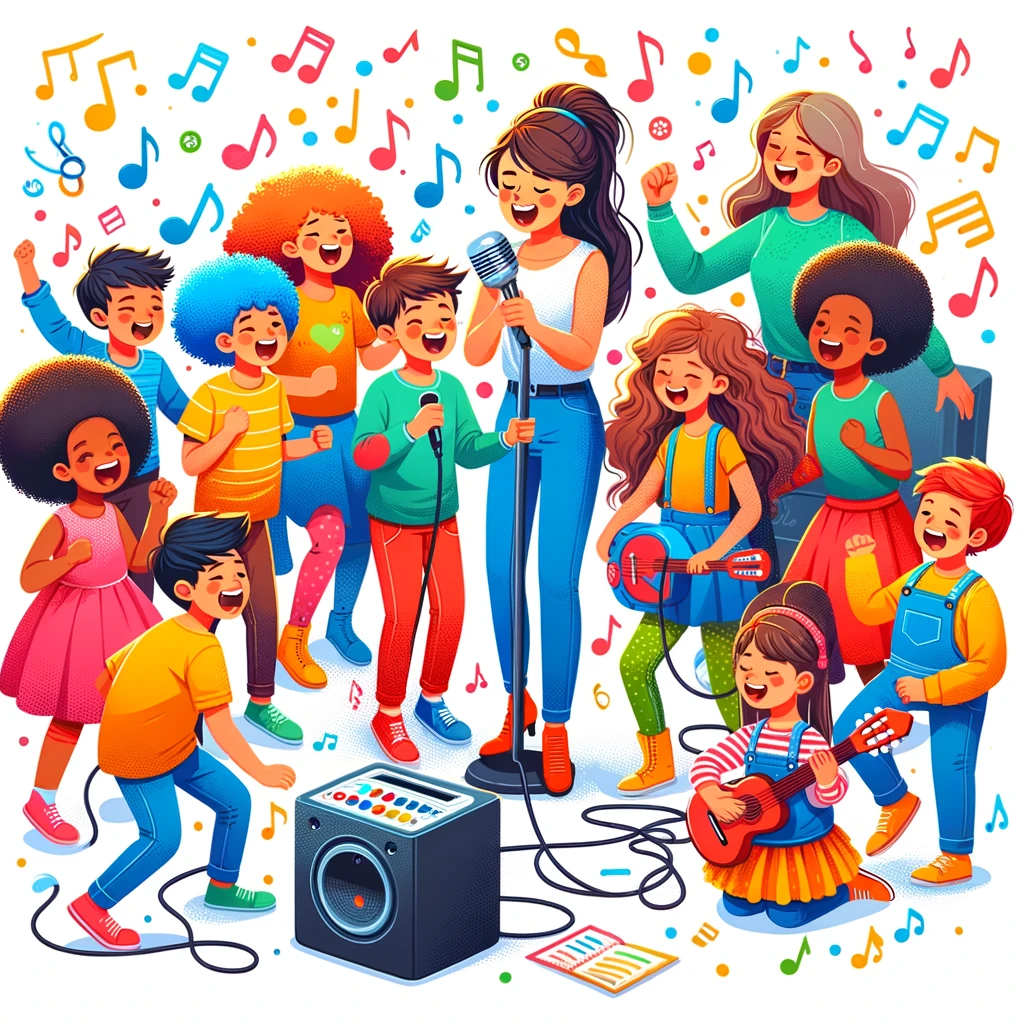Karaoke for Kids: Fun and Education
Karaoke for kids is a vibrant way to blend entertainment and education, creating an engaging atmosphere that promotes learning through music and performance. This activity harnesses the inherent joy of singing along to favorite tunes while subtly instilling valuable skills such as reading, listening, and articulating.

The Educational Benefits of Karaoke for Kids
Karaoke can be an excellent tool for language development. As children follow along with the lyrics on the screen, they’re practicing reading and recognition of words in real-time. This active engagement with text can improve vocabulary and comprehension skills, particularly as they’re exposed to new words within the context of a song. Additionally, singing along to music can aid in memory retention; the rhythm and melody of a song make it easier for kids to remember phrases and vocabulary.
From an auditory perspective, listening to music and singing helps with the development of phonemic awareness—the ability to hear, identify, and manipulate phonemes, the smallest units of sound that make up words. Karaoke also promotes clear articulation and speech fluency as children learn to match the pace of the song and pronounce words correctly to stay in time with the music.
Beyond language skills, karaoke can also teach children about different cultures and languages. A wide array of songs from around the world can expose them to the diversity of music and traditions, fostering a sense of global awareness and appreciation for other cultures.
Karaoke as a Social Activity
Karaoke is inherently social. It encourages kids to take turns, listen to others, and perform in front of an audience, which can bolster self-confidence and social skills. The supportive environment of a karaoke session allows children to express themselves and overcome shyness. It also helps them to develop empathy as they cheer on their peers and learn to appreciate the efforts of others.
Choosing the Right Karaoke Content
When selecting songs for kids, it’s essential to choose age-appropriate content. Songs with simple lyrics, repetitive structures, and clear melodies are usually the most suitable for younger children. For educational purposes, songs that tell a story or convey a moral lesson can also be beneficial. Many companies now offer karaoke machines and apps specifically designed for children, with built-in controls for parents to manage the content.
Incorporating Karaoke into Educational Settings
In educational settings, karaoke can be a valuable asset. Teachers can use it to create lessons around song lyrics, discussing the themes, vocabulary, and language structure. Karaoke can also be part of a larger lesson on music education, exploring rhythm, pitch, and the role of music in different cultures.
The Role of Technology in Karaoke for Kids
Technology has made karaoke more accessible than ever. With apps and online platforms, children can sing along to their favorite songs using tablets or smartphones. These digital tools often offer additional features such as voice effects, recording capabilities, and feedback on pitch and rhythm, making the experience both fun and educational.
Karaoke Events and Competitions
Schools and community centers can host karaoke events or competitions, which can be exciting ways for kids to showcase their talents. Such events can also foster community spirit and bring together families and educators in support of the children’s development.
Conclusion
Karaoke for kids strikes a delightful balance between enjoyment and learning. It’s a multifaceted activity that can enrich children’s education by developing important language and social skills in an enjoyable and engaging way. Whether at home, at school, or at a community event, karaoke can be a source of both fun and educational growth.